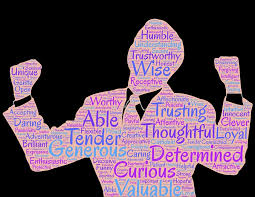
Last week a LinkedIn friend, Aly B Moreno wrote an incredibly insightful article called Sustainable Growth through HBD a most required Paradigm. I will leave you to follow the link and read it. In his article, Aly askes a number of very interesting questions around human development and it got me thinking again about how important self-awareness is in this journey and my personal journey….
My journey towards self-awareness started some years ago by trying to understand the kind of leader I am, which I wrote about in an earlier blog: https://johnkwhitehead.ca/core-leadership-self-awareness/. My personal journey continues and here is what I have learned so far.
We can only be assured of our own self-awareness. We can present this “state” to others if you will, but we cannot know how others are feeling, their state of “self-awareness” or what they are thinking unless they tell us. We can then attempt to judge for ourselves whether we want to accept that or not. This in itself becomes a “self-awareness” action, as in doing so we need to be aware of what we know and how we are “feeling” about the situation.
Self-awareness is an on-going learning process, which is why I tied it to the ability to learn (https://johnkwhitehead.ca/soft-skills-ability-to-learn/). We really do need to believe that learning is important or why do it? And by taking on “learning” we in turn become more self-aware.
Self-awareness is a state of mind; it is something many of us actively pursue. I have come to understand that people pursue self-awareness for a variety of reasons, all valid as they are theirs. They may be seeking an answer to a challenge they are facing or reflecting on an event that has impacted them. It occurs to me that there is a long history of this practice — self reflection is major component of many belief systems, and the practice of self-discovery is an integral part of that. Without getting into the mystical, the practice of spending time in reflection brings with it the opportunity for a deeper understanding of one’s thoughts, feelings and beliefs.
I tie self-awareness to emotional intelligence (EI) and the model designed by Sparrow & Knight (2006), which breaks EI down to Intrapersonal Intelligence (self-awareness and self-management) and Interpersonal Intelligence (other awareness & relationship management) or, as I teach in my Social Styles workshops, Know Yourself, Control Yourself, Know Others, Do Something for Others. Sparrow and Knight state that EI is the habitual practice of
- Using emotional information from ourselves to other people;
- Integrating this with our thinking;
- Using those actions to inform our decision-making to help us get what we want from the immediate situation, and from life in general.
In other words, EI is using thinking about feeling (and feeling about thinking) to guide our behaviour (Neale, Spencer-Arnell & Wilson, 2011). Chade-MengTan (2012) uses Ebenezer Scrooge in A Christmas Carol as an example of someone with very low intrapersonal intelligence and describes how it took three the intervention of three ghosts to raise his self-awareness. Raising self-awareness is raising our EI. Although we don’t have the opportunity to have ghosts to demonstrate to us the levels of our own self-awareness (thankfully), we do have other tools at our disposal, such as formal 360 assessments and behaviour profiles such as Tracom’s SOCIAL STYLE and Versatility profile. We can also solicit feedback from family and friends to check if our perception of ourselves matches how others see us. These tools can give us a start in increasing self-awareness.
As a coach I see this often in my client sessions. As they grasp a better understanding of the challenges they are facing, they get a better understanding of who they are, and become more self-aware. I can actually see the moment of realization or recognition: the client’s body position shifts, facial features change and often they vocalize it in some way. As a coach I can help a client become more aware of themselves as I lead them into a deeper exploration of the challenges they may be facing. The technique I use with clients to help them become more self-aware is to journal. I ask them to articulate each day’s events and progress as a means of recording how they were “feeling”, how their body was reacting, getting them to recognize triggers and then how to use them to achieve their desired changes. This can be a process of days, weeks, or even longer, but over time the act of just doing it raises their self-awareness and can lead to change. My role in that activity is to hold them accountable to doing it and to ask the questions around what they learn and how that can use that learning to create sustainable self-awareness and change.
___________________________________________________________________________________
John Whitehead, coach’s leaders to become more effective by helping them improve their interpersonal communications, emotional intelligence and resiliency.
*******Are you wondering if having a Leadership/Personal Development Coach is right for you? Contact John for a complimentary, exploratory coaching session at john@johnkwhitehead.ca********
If you would like to get notifications for when I post, please go to my blog site and register. I promise I will not spam or use your email address for anything else. You can visit and register for my blog at https://johnkwhitehead.ca/blog-2/
